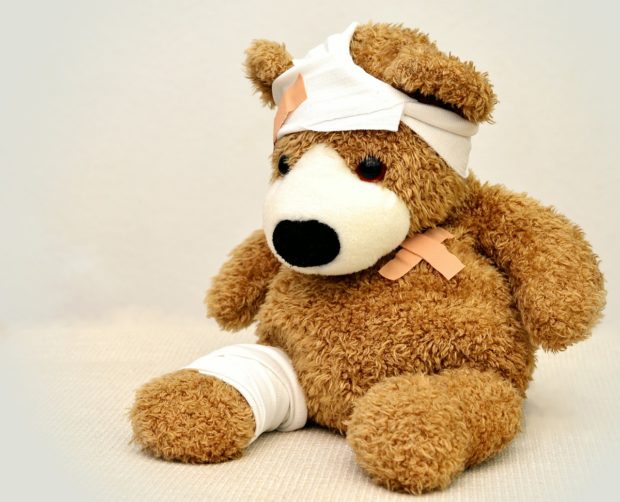Sick Day Season – The Facts You Should Know!

It’s day one of your fifth bout of norovirus, and you’re considering calling in sick. But what’s an acceptable excuse and what’s not? And does your angry-eyed boss really sympathise?
Paid sick leave isn’t just a privilege, it’s a political statement. While it’s illegal to withhold payment from an ill worker in the UK, there is no requirement under US law for employers to offer paid leave. In this vein, we’re way ahead of the Americans – and fighting the good fight for gender equality too.
Read on for some interesting facts about the beloved ‘sickie’.
Does your boss really sympathise?
According to AXA PPP Healthcare, nearly a third of bosses prefer employees to take sick days rather than come in to the office. But don’t celebrate yet; that means that 68% are either ambivalent towards or vehemently against you taking that time off.
Not only this, but 29% of those questioned by AXA PPP claimed to be frustrated by the work hours employees wasted on visits to the doctor, and fewer than half thought flu was an acceptable reason to be skipping work.
Still, what’s certain is that going into work sick can have a serious effect on productivity. Experts warn that colds are most contagious when the symptoms first begin to show. So when you feel that sore throat coming on, it may be time to call in to your boss – whatever they might say.

So who’s pulling the most sickies?
We don’t know if they’re feigned sickies or not, but recent figures obtained by City AM show that TfL workers take a huge 14 days a year off sick. Compared to the London average of 3.5, and the UK-wide 4.5, you have to wonder what they’re breeding down there in the tunnels.
It’s easy to see how illness can spread down under. Millions of commuters a day combined with less than sparkling conditions – and how much vitamin D can you source between Holborn and Uxbridge? But consider that well-paid tube drivers also get 43 days’ annual leave compared to the legal 28, and our sympathy for them wears rather.
The answer? Tory commentator Andrew Boff says: “The Tube network must emulate sooner rather than later the success of the DLR and dramatically reduce the risk of disruption to passengers. Driverless trains would significantly reduce the human contribution to delays and cancellations on our Tube network.”
The robots commeth.
Paid sick leave is fairest to women
It’s a step towards gender equality that absences for doctors’ appointments are usually paid, as females are more likely to require medical appointments than male. Women are statistically more vulnerable to muscular issues, arthritis and mental health problems.
They are also the ones who must shoulder the burdens of contraception and pregnancy – whether preventative or not. In fact, an Australian study in 2015 found that 12% of female health problems are related to the reproductive system, which correlates pretty well with the one or two more doctor appointments they needed per year than men.
Bristol company Coexist have already instituted a rule that women with menstrual pain should be able to take time off work, although they are obliged to make up the hours later. And an entire province in China has just granted women two days off a month for period pain!

We’re not the worst in Europe… In fact, we’re pretty good!
British workers are pretty lazy, right? We’re always looking for a reason to pull a sickie. Well, according to a survey by PowWowNow, not exactly.
Compared to workers in France and Germany, British employees are much less likely to fake illness for a day in bed. While a whopping 58% of French workers admitted to having faked sickness at least once every twelve months, less than a third of Brits surveyed said the same.
Unfortunately, we’re beaten ourselves by the Dutch and the Swedes, who both turned in sub-20 scores. I guess you can’t have it all.
And the award for most common complaint goes to…
Though famously a hairy issue in the workplace, mental health issues are actually the most common reasons for taking a day off work in the UK. Research by ONS suggests that stress, anxiety and depression are to blame for 17% of sick leave; that’s a whole fifth.
The problem is most noticeable among the police. Police Scotland estimates that over 141 thousand days have been lost over the last three years due to mental health issues among front-line officers.
Coming in second as day-wasting illnesses were musculoskeletal problems (13.8%), neck/upper limb issues (9.4%) and back pain (9.2%).
So next time you take a sick day, remember: your boss might not see that virulent flu as sympathetically as you do. And, unless you’re an employee of TfL, you’re probably better off slugging it out in the office than taking that tenth sick day of the month.
This guest post was authored by Inspiring Interns
Inspiring Interns is a graduate recruitment agency which specialises in sourcing candidates for internships and giving out graduate careers advice. To hire graduates or browse graduate jobs, visit their website.
Image credits.




